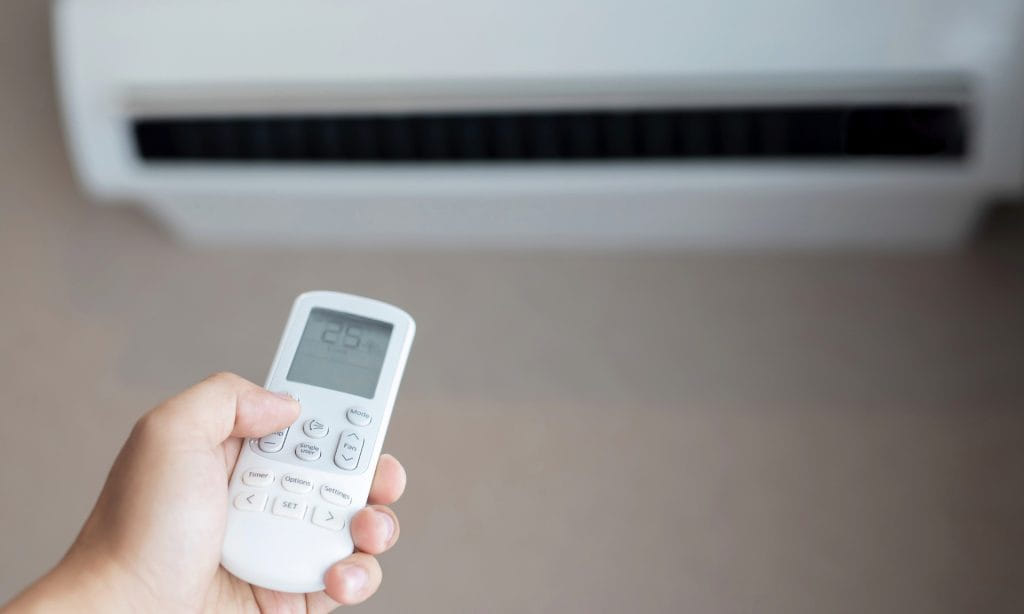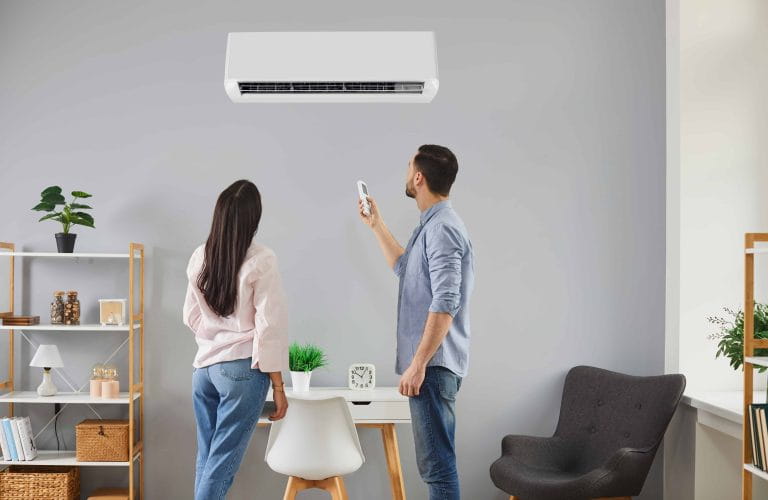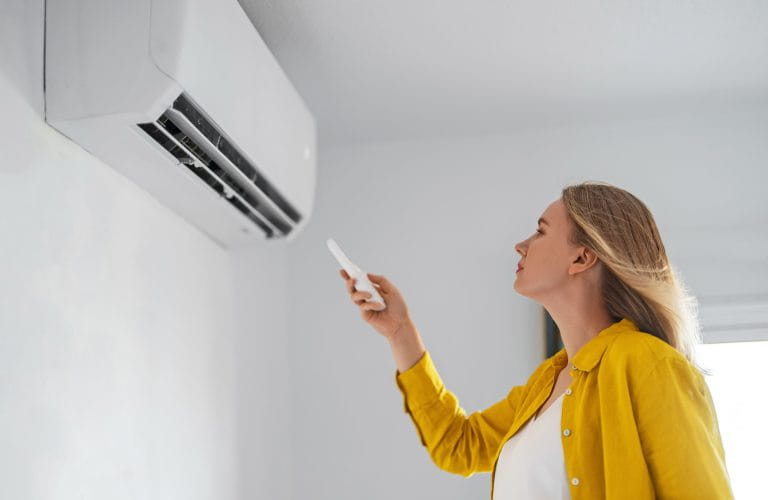To enjoy cool, comfortable rooms in summer, simply installing any air conditioner at home is not enough: it’s essential to choose the right one and pay particular attention to its power. To find the most suitable solution, there are a few aspects to consider: let’s explore them together.
Factors to consider
To understand how powerful an air conditioner should be, you need to look at its cooling capacity, expressed in BTU/h or kW. BTU stands for British Thermal Unit, the unit of thermal power used to indicate the cooling capacity of an air conditioner.
Cooling capacity in turn varies depending on several elements, including:
- the room’s surface area and volume;
- thermal insulation;
- sun exposure;
- the number of people in the room;
- the device’s energy efficiency class.
Let’s go through each of these points.

Room size
Room size makes it possible to calculate the most suitable BTU rating for the air conditioner you want to install at home.
- The standard calculation method is to multiply the room’s surface area in square metres (sqm) by a fixed coefficient: 340.
- For example, if the room measures 30 sqm, the result is 10,200 BTU.
- This means that, based on the standardised models available on the market, you should opt for a 12,000 BTU unit.
Ceiling height
It is, however, advisable to rely on an experienced technician, since beyond the basic maths, other variables need to be considered to determine the appropriate cooling power.
A room with high ceilings may require a more powerful unit for more effective and lasting cooling, whereas this is not necessary for rooms with lower ceilings.
Here are some useful guidelines between BTU capacity and room size:
- 9,000 BTU for a small room (up to 25 sqm)
- 12,000 BTU for a medium room (up to 50 sqm)
- 18,000 BTU for a large room (up to 60 sqm)
- 24,000 BTU for an open-plan space (over 60 sqm)
For entire flats ranging from 70 to 100 sqm, you may want to consider multi-split systems, i.e. with several indoor units depending on the layout.

Sun exposure
Sun exposure is another key factor when choosing the best air conditioner for your home, as it directly affects the thermal load of a room — that is, the amount of heat to be added or removed to maintain the desired temperature and humidity levels.
Cooling requirements vary depending on sun exposure:
- North-facing rooms receive little direct sunlight and usually require standard BTU capacity.
- East-facing rooms get morning sun but less in the afternoon, when summer temperatures are higher, so a slight increase in power may be useful.
- South- or south-west-facing rooms are the most challenging, as they receive sunlight during the hottest hours of the day, accumulating a significant amount of heat.
In such cases, the standard BTU calculation may not suffice: for better comfort, it is often necessary to increase the power by up to 20%.
Thermal insulation
Just like sun exposure, thermal insulation significantly affects how powerful an air conditioner needs to be.
A well-insulated home reduces heat transfer from outside, so cooling efficiency is not compromised. In this case, a less powerful device may suffice compared to a poorly insulated home.
Good insulation ensures not only greater comfort but also considerable savings on energy bills, thanks to improved energy efficiency.
Heat sources
People, household appliances, lights and other electronic devices are all heat sources that contribute to the thermal load an air conditioner must counteract with cool air. That’s why when choosing an air conditioner, these factors must be taken into account.
- Each person in a room produces an estimated 300 to 600 BTU.
- Lamps, especially incandescent ones, generate additional heat: about 4.25 BTU per Watt.
- LED lights, more modern and eco-friendly, generate far less.
- Electronic devices such as computers, refrigerators and televisions are constant sources of heat: on average, a computer adds around 400 BTU, while a television adds about 300.
Finally, the energy efficiency class of the unit is another decisive factor, as it indicates how efficiently the appliance converts electricity into cooling power.
Air conditioners with higher energy ratings (A+++, A++ or A+) help reduce running costs even for high BTU units: maximum comfort on the one hand, financial savings on the other.










































